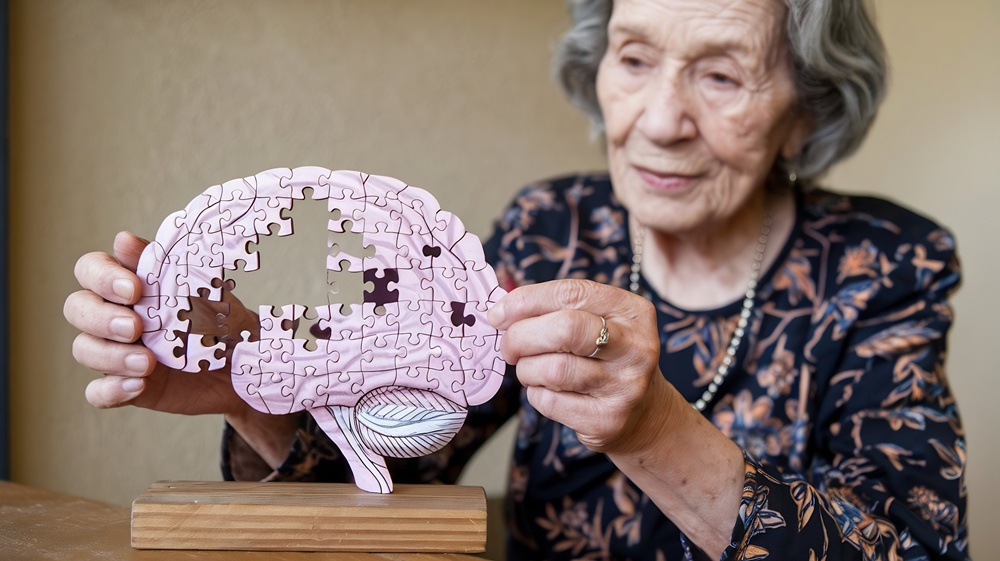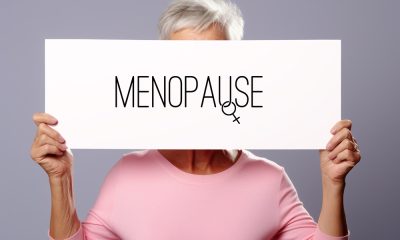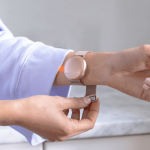Menopause
Menopause has devastating effects in the workplace, research reveals

Research conducted by Health & Her shows that one in four women consider leaving the workplace due to menopause symptoms.
Figures suggest that perimenopause and menopause is costing UK businesses 14 million working days per year, the equivalent of £1.88 billion in lost productivity each year.
Ten per cent of women decide to leave the workforce due to menopause. In the UK, 370,000 women aged between 50 and 64 have left or considered leaving their career due to the intensity of their symptoms. Another quarter had to reduce their hours or change their working pattern entirely.
Those who stay in their jobs say that the quality of work and the overall working experience are seriously affected, with 15 per cent of them saying they have called in sick due to menopausal symptoms.
Research has also suggested that due to the difficulty of the symptoms, almost a quarter of perimenopausal women surveyed admitted to making mistakes at work, while six per cent had to skip work meetings to deal with the severity of their symptoms.
Health & Her has launched a personalised employer menopause support plan that allows employers to empower their workers with specialist advice, training and discounts on supplements and solutions.
The package offers clinic access to menopause-specialist GPs, expert advice and articles, managerial and employee training, digital tools to help track and manage menopause symptoms, and GP-led webinars designed to inform and support both menopausal women and the employees who work with and manage them.
“This support plan is a positive first step in creating workplaces that better support female employees experiencing perimenopause or menopausal symptoms,” says Kate Bache, co-founder of Health & Her.
“With the Office of National Statistics suggesting that women aged 50 to 64 are the fastest growing economically active group, businesses need to adapt and create an environment that upholds and nourishes this talented, experienced and able demographic – rather than risk losing them altogether.
“What is important to remember is that each menopause is unique,” Bache adds. “Every woman is an individual, who has an individual experience of menopause. As such, helping to support women going through perimenopause and menopause, businesses must develop a culture and policy approach that both encourages menopausal women generally and helps target their specific needs and requirements.”
To find out more about the support plan, visit healthandher.com.
News
NHS health checks to include menopause questions for the first time

NHS health checks will include questions about menopause for the first time, a move ministers say could help up to five million women in England.
The Department of Health and Social Care said the new questions, to be developed over the coming months, could be introduced from 2026.
Adults aged 40 to 74 without long-term conditions are eligible for these free checks every five years.
The checks currently screen for heart and kidney disease, type 2 diabetes, dementia and stroke risks.
Adding menopause questions marks what health secretary Wes Streeting described as giving women “the visibility and support they have long been asking for.”
Streeting said: “Women have been suffering in silence for far too long.
“They are left to navigate menopause alone, with very little support – all because of an outdated health system that fails to acknowledge how serious it can be.
“No one should have to grit their teeth and just get on with what can be debilitating symptoms or be told that it’s simply part of life.”
Around three-quarters of women experience symptoms such as hot flushes, night sweats, depression and sleep problems.
One in four describe their symptoms as severe.
National Institute for Health and Care Excellence guidance recommends hormone replacement therapy (HRT) as the first-line treatment. HRT can also help maintain muscle strength and reduce the risk of osteoporosis, where bones become weak and brittle.
Despite this, many women say they are not listened to or offered adequate support.
Dr Sue Mann, NHS England’s national clinical director for women’s health, said: “By tailoring NHS health checks to include questions around menopause, we hope more women will get the support they need to manage their symptoms.”
Experts welcomed the move but cautioned that access inequalities remain.
Professor Ranee Thakar, president of the Royal College of Obstetricians and Gynaecologists, called it “fantastic news” that could help reduce stigma, but said implementation would be key.
“For this change to have maximum positive impact we’d like to see a real focus on ensuring women from diverse ethnic communities and socially deprived areas are supported to access health checks, and excellent menopause training for healthcare assistants providing them,” she said.
Kate Muir, author of Everything You Need to Know About the Menopause (But Were Too Afraid to Ask), said: “This is desperately needed, particularly to provide evidence-based information for women on the benefits of HRT. GPs’ appointments are a perfect way to get knowledge into all communities.
“We know from NHS statistics that 23 per cent of white menopausal women are on HRT, but only 5 per cent of black and 6 per cent of Asian women.
“This may open doors.”
Janet Lindsay, chief executive of Wellbeing of Women, added: “Women and people from marginalised communities are less likely to know about or attend these [health checks], and progress on menopause support cannot leave them behind.
“Healthcare professionals must work with grassroots organisations in these communities to ensure those facing additional barriers receive the tailored care they need.”
Menopause
Earlier menopause may harm heart-brain health connection, study suggests

Women who experience menopause earlier in life may face damage to the connection between heart function and brain health, new research suggests.
The study of more than 500 participants examined whether an earlier age at menopause affects the relationship between cardiac performance and cognitive function, as well as changes in brain structure.
Researchers from the University of Toronto and Sunnybrook Research Institute assessed how reduced heart function and early menopause together influence brain health in women, who are already at greater risk of both cardiovascular disease and Alzheimer’s disease.
Heart performance was measured using resting left ventricular ejection fraction — the proportion of blood pumped out with each heartbeat — captured through cardiac MRI scans.
Brain MRI scans assessed grey matter volume (the nerve-cell-rich tissue) and white matter hyperintensity burden, which indicates areas of damage linked to ageing and vascular disease.
Participants also completed standardised cognitive tests, with results adjusted for factors including age, ethnicity, education, hormone therapy use and whether menopause occurred naturally or through surgery.
The findings suggest that early menopause and reduced heart function may have a combined negative impact on the brain.
Weaker cardiac output can limit oxygen and nutrient flow to brain tissue, increasing the risk of damage and dementia over time.
Tallinn Splinter is lead author from the University of Toronto and Sunnybrook Research Institute.
The researcher said: “We still don’t fully understand how menopause, and particularly earlier menopause, affects brain ageing.
“By examining the link between heart and brain health, we wanted to shed light on this important but often overlooked area.”
Previous studies have shown that earlier menopause is linked with higher risks of cognitive decline and Alzheimer’s disease.
This research builds on that evidence by showing how menopause timing and heart health interact to influence brain outcomes.
Dr Stephanie Faubion, medical director for The Menopause Society, said: “These findings highlight the importance of including sex-specific factors, such as age at menopause, in dementia research and in developing prevention and intervention strategies.”
News
Early menopause linked to increased dementia risk

Women who enter menopause earlier in life face a higher risk of dementia, while hormone replacement therapy (HRT) appears to lower that risk, new research suggests.
The study of 1,329 cognitively healthy women also found that greater exposure to oestrogen across the reproductive lifespan was associated with better cognitive performance and larger brain volumes.
Women have a higher risk of dementia than men, accounting for almost two-thirds of those living with Alzheimer’s disease — the most common form of dementia that affects memory and thinking skills.
Researchers from the University of Galway and Boston University carried out the study using data from the Framingham Heart Study — the world’s longest-running longitudinal cohort study — to analyse the association between reproductive factors and markers of brain ageing.
They examined the age at first period, age at menopause, duration of reproductive lifespan, blood oestrogen levels, and whether participants used post-menopausal hormone replacement therapy.
These were then compared with results from cognitive tests, MRI scans showing signs of brain shrinkage, and future dementia risk.
Having more children, higher oestrogen levels and later menopause were all linked to stronger cognitive performance, particularly in visuospatial skills — the ability to perceive, analyse and mentally process visual and spatial information.
Professor Emer McGrath is lead author and associate professor in medicine at the College of Medicine, Nursing & Health Sciences, University of Galway, and consultant neurologist at Galway University Hospital.
The researcher said: “Our study explored the association between reproductive and hormonal factors across a woman’s lifespan and risk of brain ageing.
“We looked at neurocognitive and neuroimaging markers from MRI brain scans, as well as cognitive test performance, including tests of memory, reasoning skills and visuospatial skills.
“We also looked at the future risk of dementia in relation to these reproductive factors.
“We found that entering menopause at an earlier age appears to be associated with an increased risk of dementia, while post-menopause hormone replacement therapy appears to be associated with a lower risk.
“Although our results suggest positive cognitive benefits of greater lifetime oestrogen exposure, they do require further validation.”
The research also found that having more children was associated with larger brain volumes, including in regions typically showing shrinkage in Alzheimer’s disease.

 Diagnosis4 days ago
Diagnosis4 days agoDozens of women report suffering painful burns after using Always sanitary towels

 News3 weeks ago
News3 weeks agoFDA plans to revise black box warning on menopause hormone therapies

 News2 weeks ago
News2 weeks agoAI-powered women’s health companion Nexus launches in UK

 News1 week ago
News1 week agoWomen’s health innovations recognised in TIME’s Best Inventions 2025

 News3 weeks ago
News3 weeks agoScientists turn human skin cells into eggs in IVF breakthrough

 Menopause3 weeks ago
Menopause3 weeks agoDaily pill could delay menopause ‘by years,’ study finds

 Opinion3 weeks ago
Opinion3 weeks agoAncient herb to modern must-have: Why ashwagandha is capturing UK women’s attention

 Diagnosis2 weeks ago
Diagnosis2 weeks agoMenstrual cycle affects women’s reaction time, study finds





























1 Comment